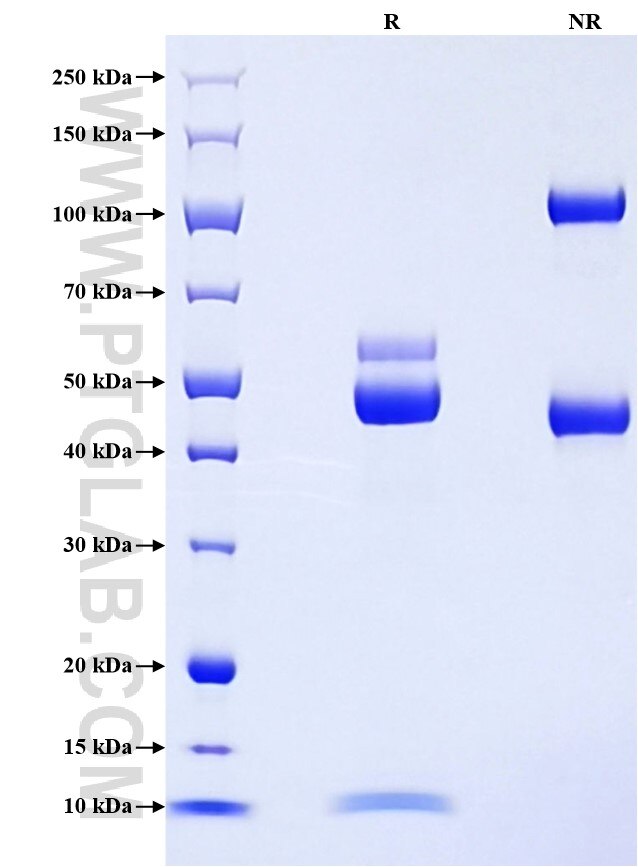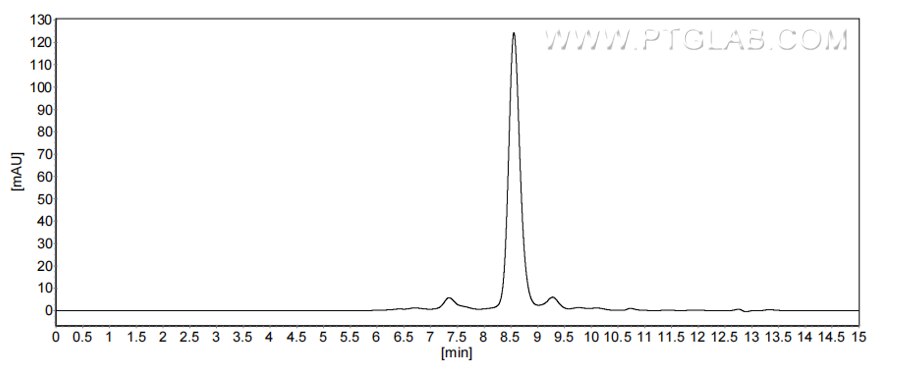Recombinant Human KLK6 protein (rFc Tag) (HPLC verified)
Species
Human
Purity
>90 %, SDS-PAGE
>90 %, SEC-HPLC
Tag
rFc Tag
Activity
not tested
Cat no : Eg2826
Validation Data Gallery
Product Information
| Purity | >90 %, SDS-PAGE >90 %, SEC-HPLC |
| Endotoxin | <0.1 EU/μg protein, LAL method |
| Activity |
Not tested |
| Expression | HEK293-derived Human KLK6 protein Glu17-Lys244 (Accession# Q92876-1) with a rabbit IgG Fc tag at the C-terminus. |
| GeneID | 5653 |
| Accession | Q92876-1 |
| PredictedSize | 51.2 kDa |
| SDS-PAGE | 10 kDa, 44-50 kDa and 55-60 kDa, reducing (R) conditions |
| Formulation | Lyophilized from 0.22 μm filtered solution in PBS, pH 7.4. Normally 5% trehalose and 5% mannitol are added as protectants before lyophilization. |
| Reconstitution | Briefly centrifuge the tube before opening. Reconstitute at 0.1-0.5 mg/mL in sterile water. |
| Storage Conditions |
It is recommended that the protein be aliquoted for optimal storage. Avoid repeated freeze-thaw cycles.
|
| Shipping | The product is shipped at ambient temperature. Upon receipt, store it immediately at the recommended temperature. |
Background
Kallikrein-related peptidase 6 (KLK6) belongs to a family of serine proteases that are emerging as prevalent biomarkers of inflammatory and malignant diseases. Cell culture and preclinical animal model studies suggest that KLK6 may promote inflammation and autoimmunity via cleavage of the G protein–coupled protease-activated receptor 1 (PAR1) and PAR2.
References:
1. Billi AC, et al. (2020). J Clin Invest. 130(6):3151-3157. 2. Oikonomopoulou K, et al. (2006). Biol Chem. 387(6):817–824. 3. Radulovic M, et al. (2015). Neurobiol Dis. 83:75–89.

